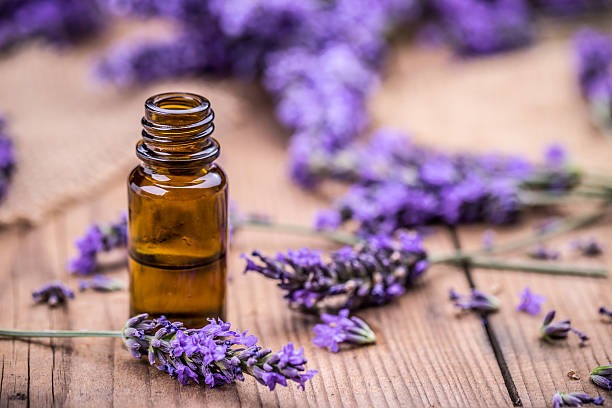Essential oils have been used for centuries to promote relaxation and improve sleep. These natural oils, extracted from plants and herbs, contain unique compounds that can provide a variety of therapeutic benefits. In this beginner's guide, we'll take a look at some of the most popular essential oils for better sleep and how to use them to improve your slumber.
Popular Essential Oils for Sleep
Lavender Oil for Sleep
Lavender oil is one of the most well-known and widely used essential oils for sleep. This oil is extracted from the flowers of the lavender plant, and is known for its calming and relaxing properties. It can help to reduce anxiety and stress, which are major contributing factors to insomnia. To use lavender oil for sleep, you can add a few drops to a diffuser, or mix it with a carrier oil and massage it into your temples, wrists, or the soles of your feet.

Chamomile Oil for Sleep
Another essential oil that's popular for improving sleep is chamomile oil. This oil is extracted from the flowers of the chamomile plant, and is known for its calming and soothing effects. It's commonly used to help with insomnia, anxiety, and stress. You can use chamomile oil in a diffuser, or mix it with a carrier oil and massage it into your skin.
Valerian Oil for Sleep
Valerian oil is another essential oil that's commonly used for sleep. This oil is extracted from the root of the valerian plant, and has been used for centuries to promote relaxation and improve sleep. It can help to reduce anxiety and promote a sense of calm. You can use valerian oil in a diffuser, or mix it with a carrier oil and apply it to your skin.
Sweet Marjoram Oil for Sleep
Sweet marjoram oil is also known to promote sleep and relaxation. This oil is extracted from the leaves of the sweet marjoram plant and has been used traditionally to relieve stress and tension. You can use it in a diffuser, in a bath or mix it with a carrier oil and massage it on chest and back before sleep.
Ylang-Ylang Oil for Sleep
Ylang-ylang oil is a another popular essential oil for sleep. This oil is extracted from the flowers of the ylang-ylang tree and is known for its sedative and calming effects. It can help to reduce anxiety and promote a sense of relaxation. You can use ylang-ylang oil in a diffuser, or mix it with a carrier oil and apply it to your skin.
Using a Diffuser for Essential Oils
Aside from essential oils, diffusers can be a great addition to your sleep routine. The diffusers are devices that use ultrasonic technology to disperse the essential oils into the air in the form of a mist. You can set the diffuser to run for a certain amount of time and it will help to spread the oils throughout your room, allowing you to breathe in their calming scent as you fall asleep.
Other Considerations for Using Essential Oils for Sleep
When using essential oils for sleep, it's important to keep in mind that everyone is different and what works for one person may not work for another. It's also important to use high-quality, pure essential oils, as cheaper and diluted versions may not be as effective. Additionally, it's a good idea to speak with a healthcare professional before using any new essential oils, especially if you are pregnant, breastfeeding, or taking medication.
It's also worth noting that while essential oils can be a great way to improve sleep, they should not be the only solution. A good sleep routine including a consistent sleep schedule, comfortable sleeping environment, and a relaxing pre-sleep routine can greatly help in having a better sleep. Additionally, managing stress and addressing any underlying medical conditions can also greatly help improve sleep. Essential oils can be a great addition to your routine, but it's important to address all aspects of sleep hygiene for best results.
In summary, essential oils can be a powerful tool in the fight against insomnia and a great addition to your sleep routine. The best way to improve sleep is to use essential oils that help you relax and fall asleep. These include lavender, chamomile, valerian, sweet marjoram and ylang-ylang. Always use pure, high-quality oils, and consider using a diffuser to disperse them throughout your room. Be sure to speak with a healthcare professional before using any new essential oils, and remember to address all aspects of sleep hygiene. With the right approach, essential oils can help you achieve the restful sleep you deserve.










